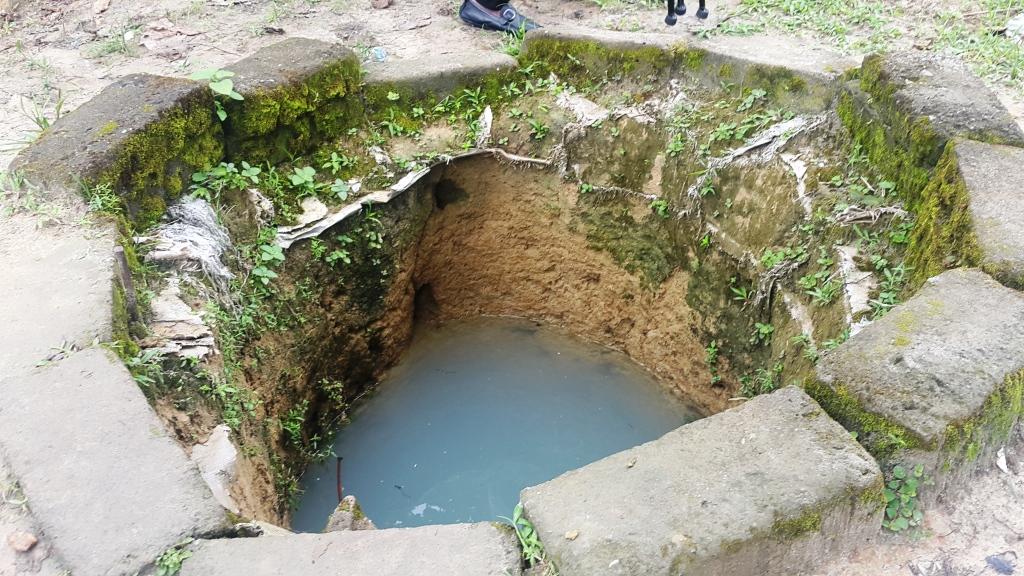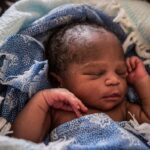Next to air, water is considered one of the most essentials element to human life as the body cannot usually survive longer than several days without.
It is not only essential to every single cell and organ in the body but makes up two-thirds of the weight of the human body.
But this essential need for human survival has been found inadequate across the world with about two billion people who do not have access to improved water sources.
According to the new WHO/UNICEF Joint Monitoring Programme (JMP) report, 2.1 billion people worldwide lack access to safe, readily available water at home, and 4.4 billion lacks safely managed water sanitation.
Research shows that clean water, basic toilets and good hygiene practices are essential for the survival and development of children but there are around 2.4 billion people who do not use improved sanitation and portable water in the world.
Without these basic needs, the lives of millions of children are at risk. For children under five, water- and sanitation-related diseases are one of the leading causes of death.
Every day, over 800 children die from preventable diseases caused by poor water, and a lack of sanitation and hygiene.
It also revealed that that one of the reasons why poverty has become epidemic in Africa is also the most overlooked, the lack of access to clean drinking water aside political instability, ethnic conflicts, climate change and other man-made causes.
Residents in Opobo/Nkoro LGA recount their stories
Women and children in every community are the most affected when water is not available.
The people of Ottalanma community in Opobo/Nkoro Local Government Area, River State told the story of how they suffered to get water for use in the past and how relief came their way.
Though living in the riverine area, residents said they had to resort to the use of small home wells which the aged ones said is over 100 years for cooking, bathing and washing since the river water is salty and cannot be used for such purposes.
Monema Peters,32, said, in all her life from childhood till she got married portable water has been a challenge for them in the community adding that she only know of three well serving every residents.
She said they trek about 45 minutes to one hour depending on the well you want to fetch from to access water adding that because of the distance, they go in group of at least three so that they would not be scared.
“We go far places to fetch from the well, mostly early in the morning or late at night so that we could get at least a cleaner one for cooking and drinking. The water is always coloured but we leave it to settle down before we can drink or use it to cook,” she explained.
She explained that drinking the water was always a problem for them especially the children.
“Children complained of stomach pain and most time they start stooling. But we have no other choice then. It seemed the adult were used to it.”
An elderly woman, Otonye Katherine, who said she has lived all her life in the community said it now she is experiencing what good water is all about.
She said to get clean water they used to go to the well between 8pm and 9pm then they can get it clean because it might have settled. But they are exposed to sandflies biting them at such time of the day especially during the moonlight.
“If it is not sandfly, you fit go jam snake and fit run and break your bucket too,” she said.
The mother of five, expressing her joy said, “Indeed water is life. Na the one wey sweet for mouth we dey use now since tap water came to our community. E get that other one wey we dey fetch before, that one dey salty, e no good. But this one wey this water don come, e dey close to our houses, we are happy.”
She said the water is clean, safer and they don’t have to travel a long distance before they access water adding that the children are now getting to school early, adding that she used to pity the children because they were most affected.
“Dem dey get malaria, cholera and other sickness because of the bad water. But we thank GOD the children are well now.”
Otonye said they are grateful as a community to those that provide them with the water project adding that for many years they have leaved in the midst of water but none to use.
“Make God give them another project make them bring come. We really appreciate it. God bless them and give them long life.
“Make God give them another project make them bring come. We really appreciate it. God bless them and give them long life.”

School children were not left out of the suffering
Dick Sunday, 11 years old, said they used to go to the school very late because they have to assist their mothers in fetching water from far distance well before going to school.
He said they drink the water, it result into stomach pain and they often start stooling.
“Despite the fact we are helping our mothers in fetching water, teachers still beat us for coming late to school and if we tell them what kept us late they will say we are lying and still flog us.
“Our resumption time is 7.00am but we don’t get to school most time until past 8.00am. No matter the explanations, teachers would still cane us saying we are lying. But since we have the borehole we get to school on time and there is no punishment again.
The well water according to him used to turn their stomach because it is not clean, “many of us used to be sick but since we started drinking this new one we are not sick again.”

When EU/UNICEF project came to their rescue
Ottalanma community was one of the three communities in Opobo/Nkoro LGA that benefitted from the United Nations Children Fund (UNICEF) funded by European Union intervention project on Water, Sanitation and Hygiene (WASH).
The United Nations Children Fund (UNICEF) chief of water sanitation and hygiene (WASH), Zaid Jurji, said some of these figures during a presentation he made recently at the media dialogue on WASH in Port Harcourt, Rivers State.
He stated that the gaps in water, sanitation and hygiene services in Nigeria are far more costly than envisaged.
“An estimated 47 million Nigerians representing 24.6% of the population do not have any toilet, while another 75 million use unimproved toilets. These people, including vulnerable women and children, suffer as a result of ingesting contaminated water/food and living in unsanitary conditions,” he said.
UNICEF chief of WASH, Zaid Jurji said the intervention is necessary to give the people access to portable water and good sanitation facilities adding that state of emergency be declared in Nigeria water sector.
He added that the gaps in water, sanitation and hygiene services in Nigeria are far more costly than envisaged.
According to him, the sanitation sector in Nigeria is severely under-resourced while explaining that sanitation is only 19% of WASH budget.
“It is accorded limited state funding, suffers low budget expenditure, especially in rural areas, and poor accountability and governance,” he said.
The acting permanent secretary, ministry of water resources and rural development, rivers state, Emmanuel Amatemeso, whose Ministry partnered with UNICEF urged them to beef up the interventions in the Niger Delta region, especially Rivers State.
He lamented that the few on-going projects were confronted with inadequate funding due to the peculiarities of the region saying, “because of our peculiar environment, transportation cost of materials needed for projects are more expensive than the materials themselves. Such inputs are not considered and so our projects suffer poor funding.”
The Chairman, Opobo/Nkoro Local Government Area of Rivers State, Eugene Joshua Jaja who expressed his joy over the water and sanitation projects in the communities said, now that the whole thing is on ground, we have arranged both internal and formal security to ensure that nobody tampers with it.
“The community has a part to play in ensuring that these projects are protected and not vandalised because they know how many years it took them for this to come. Let everybody warn their children from tampering with anything here. Let them make sure it is secured.”
He said that part of the contributions they have mad would be set aside for maintenance adding that they want issues of water borne diseases such as diarrhoea, dysentery and cholera that ravaged the communities in the past repeat itself in this community.
Jaja also said, before this time, the community has been using unsanitary well and they have been defecating in the open because of lack of toilet. But because of the intervention of UNICEF and its partners, we have been able to sensitise the community and bring them to the page of open-defecation free zone also.
“Now communities are building houses with toilets in it. The water that has been supplied by UNICEF has helped us to have a community free of communicable diseases like diarrhoea, dysentery and cholera. As at the last count before this water came, we had an epidemic in the LG and about five children died. Because of this water by UNICEF, the community has safe water that they are drinking and the deaths have reduced. From 2017 till date, we have not experienced any outbreak of epidemic or diseases. I think it is a good thing for us.”
He further said the water is solar powered and as far as there is sun to power it water is available.
“We have the facility caretakers that are taking care of the facilities. The WASHCOM people ensure that the project is sustained. We have about 5,000 people that are depending on this water and it has about five outlets in different areas. Women and children are the happiest people about these projects,” he said.

 Join Daily Trust WhatsApp Community For Quick Access To News and Happenings Around You.
Join Daily Trust WhatsApp Community For Quick Access To News and Happenings Around You.


